Local Government and Communities Committee
Local Government and Communities Committee Annual Report 2018/19
Introduction
This report covers the work of the Local Government and Communities Committee during the Parliamentary year 12 May 2018 to 11 May 2019.
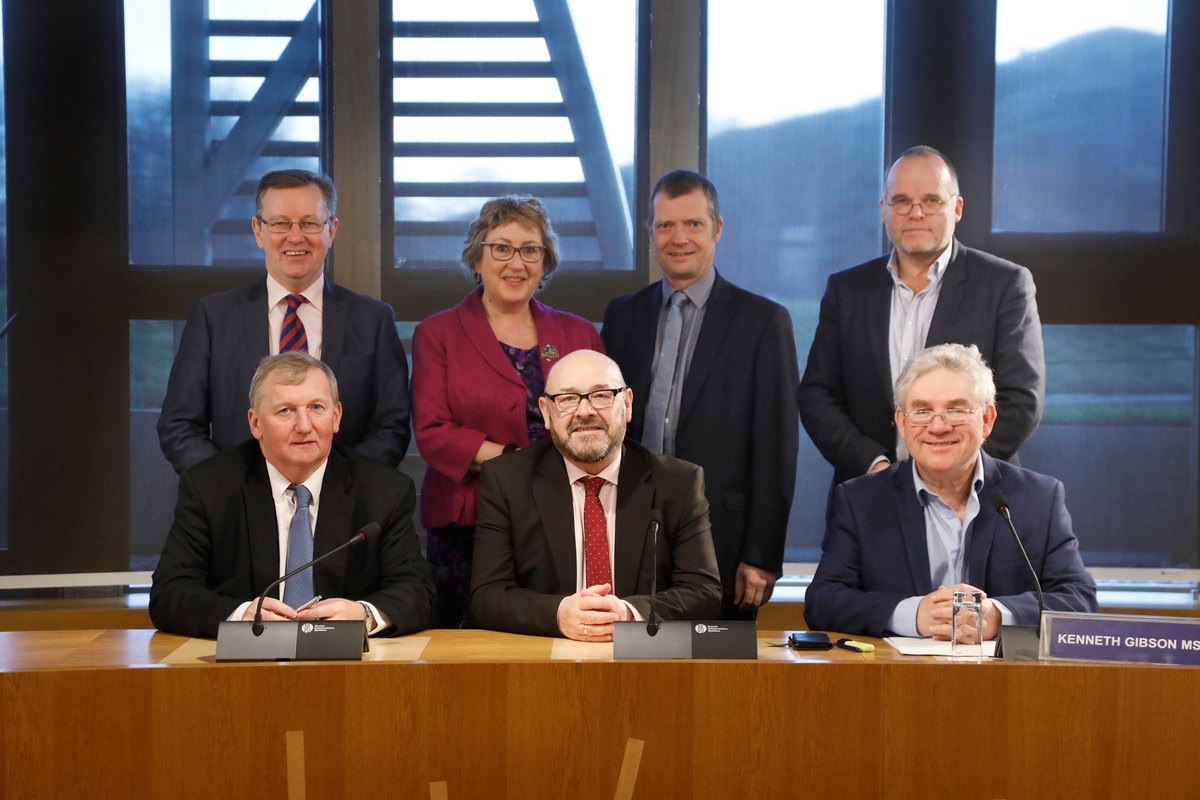
Membership Changes
Previous members of the Committee during the reporting year:
Jenny Gilruth (30 March 2017 to 6 September 2018)
Monica Lennon (9 January 2018 to 15 November 2018)
Meetings
During the parliamentary year, the Committee met 34 times. Of these meetings 2 were wholly in private and 29 were partly in private. Most items taken in private were the consideration of draft reports and consideration of evidence heard. All meetings were held in Edinburgh.
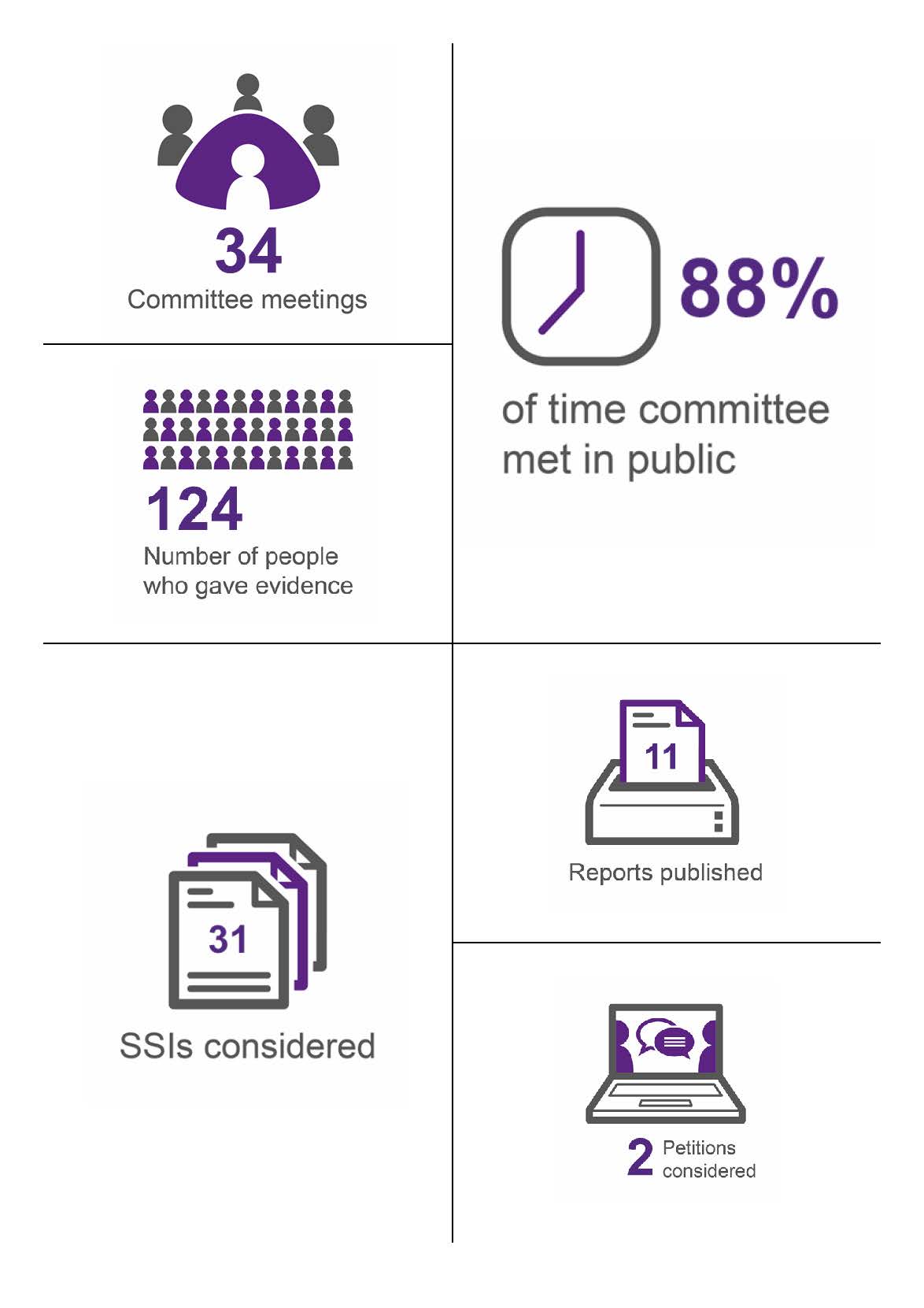
Equalities and Engagement
The Committee mainstreams equalities issues throughout its work. The Committee has also proactively sought to increase the diversity of those giving evidence. Since the start of the session, the Committee has made it a priority to ensure that often-excluded groups are able to contribute to the Committee's work, expressly considering at the start of every major piece of new work how best to involve them in its scrutiny. For example as part of its Budget Scrutiny for 2019-20, it looked at the issue of workforce planning and housing adaptations, hearing from the Coalition for Racial Equality and Rights and Glasgow Centre for Inclusive Living.
As part of their scrutiny of the Fuel Poverty (Target, Definition and Strategy) (Scotland) Bill, Committee Members travelled to communities in Dundee and the Western Isles to meet directly with those who had experienced or were facing fuel poverty. In selecting these locations, the Committee ensured that it heard about the differing experiences of fuel poverty from people in urban and island locations. The Committee also met with members of the Scottish OIder People's Assembly to hear about the impact of fuel poverty on older people. As part of its work on accessing greenspace in Scotland, Committee member Andy Wightman MSP took part in a workshop with members of the Scottish Youth Parliament to hear the views of young people on the issue.
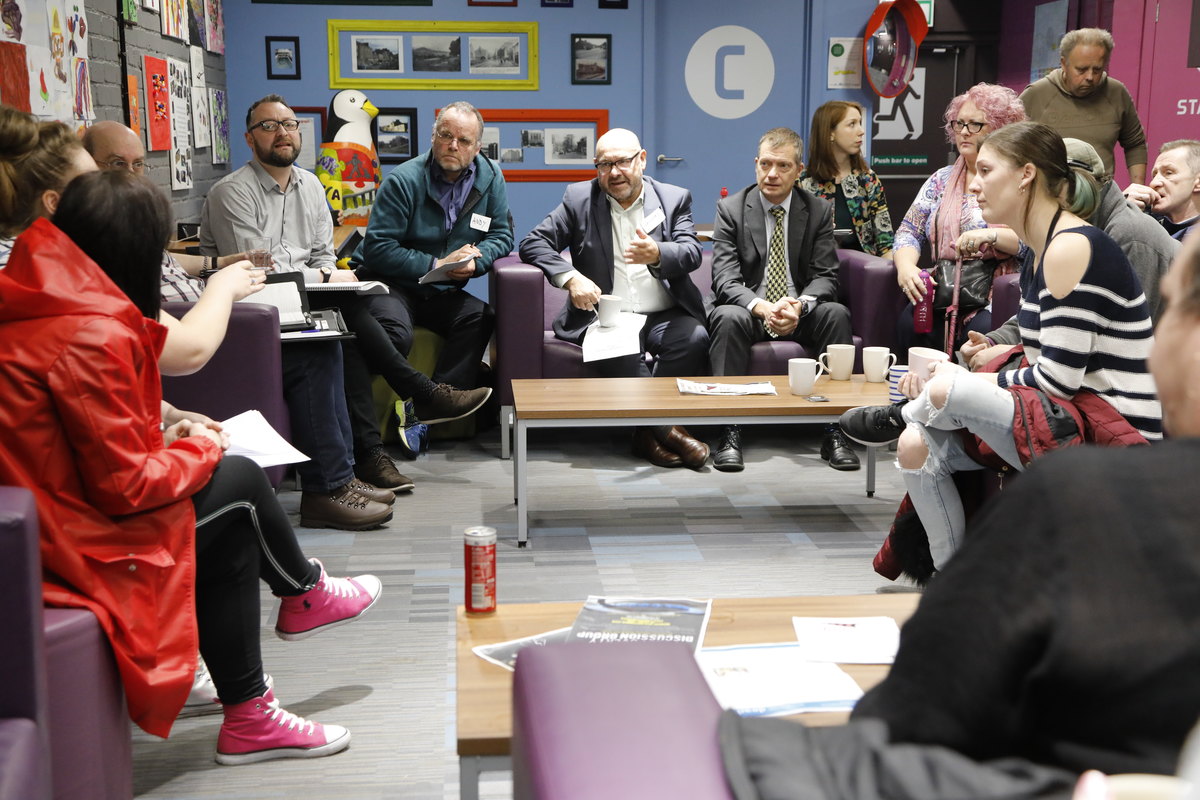
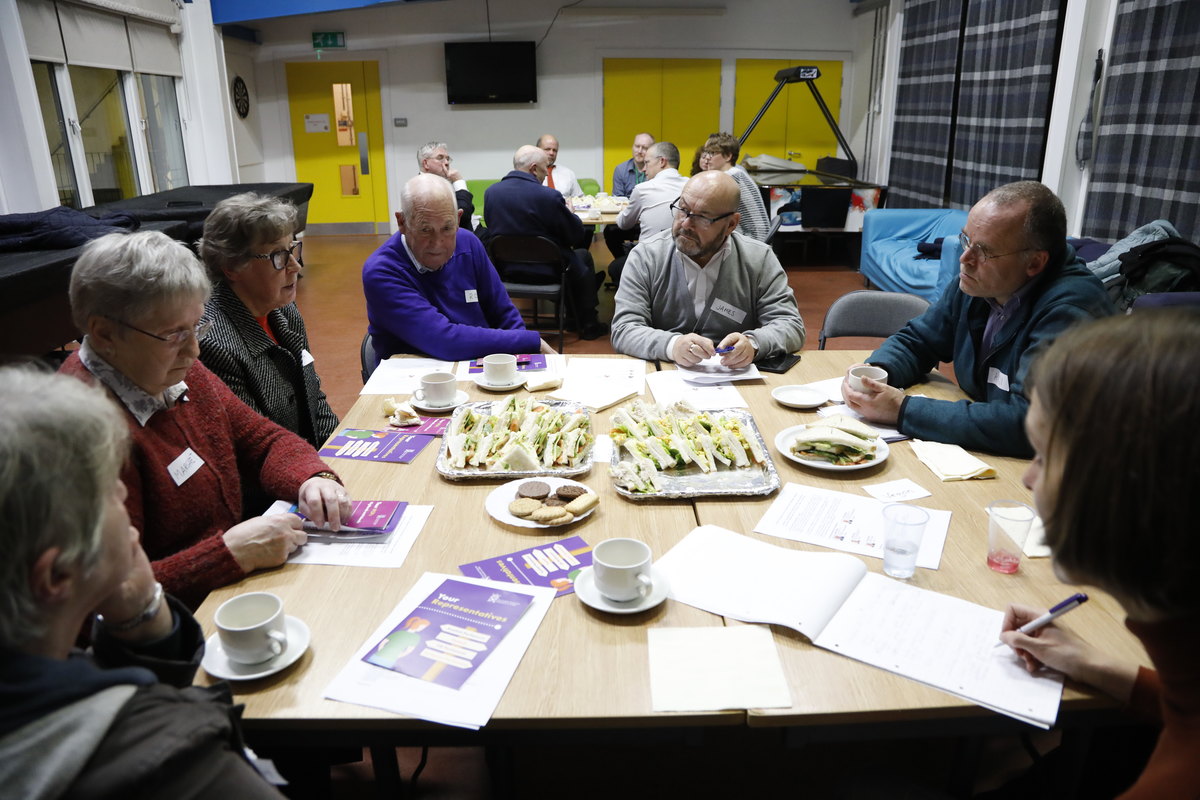
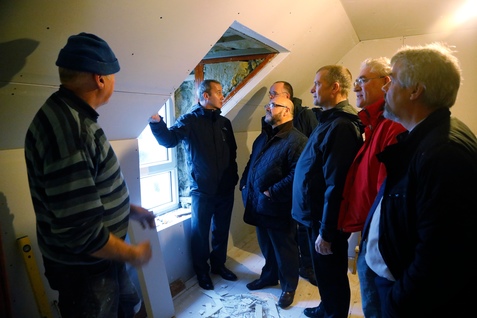
The Committee has agreed to take a similar approach to information gathering in relation to a recently commenced short inquiry into empty homes and a new Scottish Government Bill to reform the non-domestic rates system.
Legislation
A large proportion of the Committee's workload in 2018-19 was taken up with the consideration of legislation.
Planning (Scotland) Bill
The Committee published its Stage 1 report on the Planning (Scotland) Bill on 17 May 2018. Most of its scrutiny of the Bill was carried out in the previous parliamentary year and therefore last year's annual report has more detail on the Committee's approach, including evidence taken and engagement activities.
Amongst a number of recommendations, the Committee called on the Government to set out the purpose of planning on the face of the Bill, to provide further support to disadvantaged communities to help shape planning decisions in their area, and to include an "Agent of Change" principle in the Bill; a principle that puts the onus on developers to mitigate pre-existing noise impacts in order to protect cultural venues, such as local music venues.
The Scottish Government responded to the Committee's Stage 1 report on 24 May 2018 and the Stage 1 debate was held in Parliament on 29 May 2018.
The Committee considered the Planning (Scotland) Bill at Stage 2 (the main amending stage) between 12 September 2018 and 14 November 2018. With seven meetings required to consider the 394 amendments lodged during this period, this turned out to be the Parliament's longest Stage 2 in over a decade. Many of the amendments lodged sought to implement, sometimes in different ways, recommendations made by the Committee in its report, including those referred to in the previous paragraph. The Minutes of the Committee's Stage 2 meetings, setting out in precise detail all the Committee's decisions on amendments are available on the Bill page here.
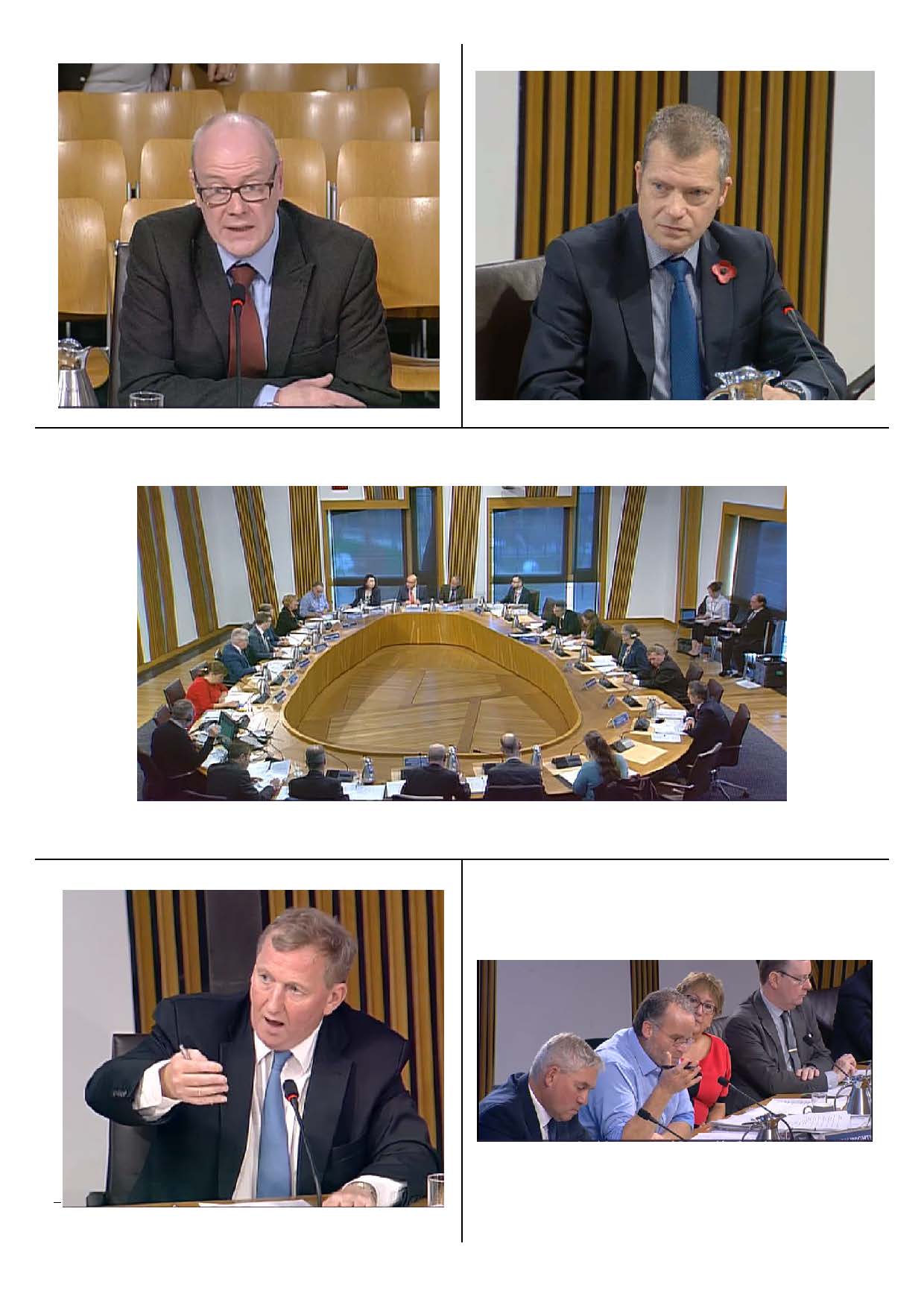
Fuel Poverty (Target, Definition and Strategy) (Scotland) Bill
The Fuel Poverty (Target, Definition and Strategy) (Scotland) Bill was introduced by the then Cabinet Secretary for Communities, Social Security and Equalities, Angela Constance MSP, on 26 June 2018. The Committee was designated lead Committee for Stage 1 scrutiny of the Bill on 5 September 2018. The Bill sets a target that no more than 5 per cent of households should be living in fuel poverty by 2040. It also sets out a new definition of fuel poverty, which in turn is based on the setting of a defined minimum income standard (MIS).
As well as undertaking some fact-finding and engagement activities outside of Edinburgh (as discussed above), the Committee held five oral evidence sessions with stakeholders and experts in November and December, concluding with an evidence session with the Minister for Local Government, Housing and Planning on 19 December. The Committee's call for written evidence received 67 responses.
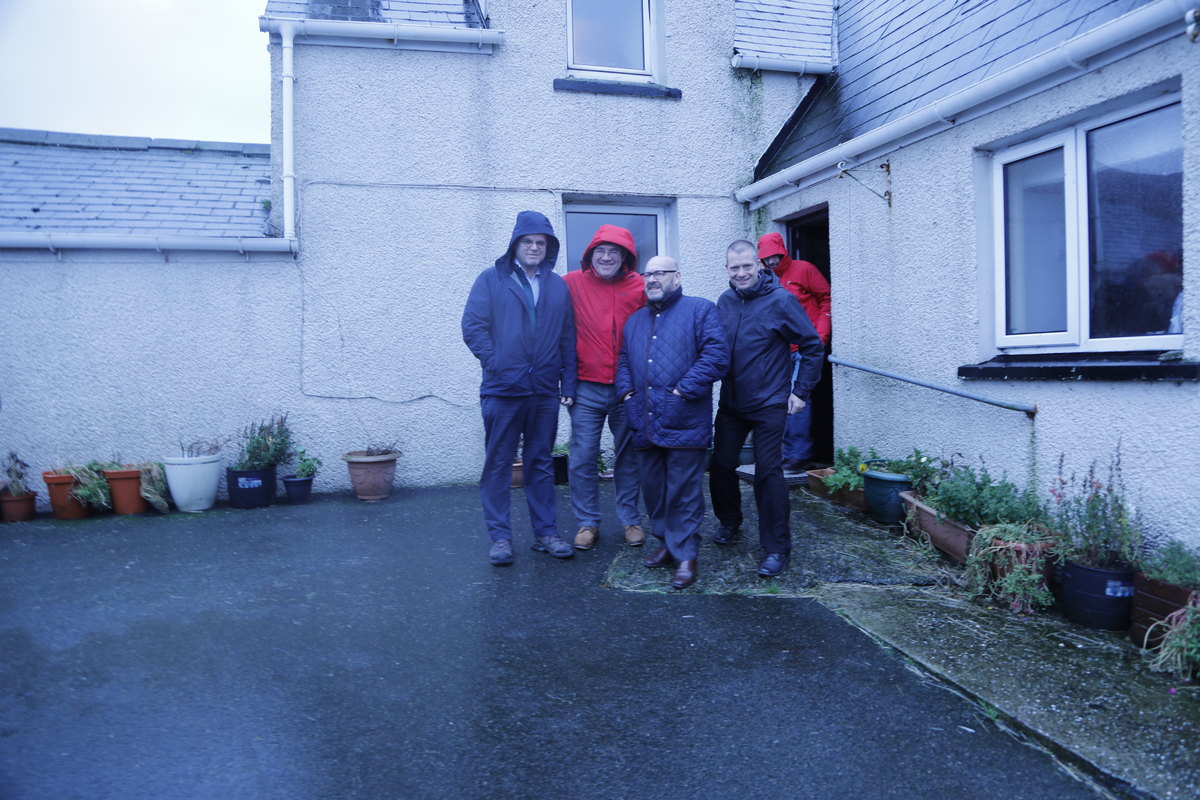
The Committee published its Stage 1 report on 29 January 2019. The Committee welcomed the Bill, noting its potential to change lives for the better, but called for several changes. Key recommendations included a call for a separate target to focus on people living in ‘extreme fuel poverty’ i.e. those spending more than 20 per cent of their income on fuel. It also called for a separate MIS to be applied to those living in rural and island areas, to reflect the higher costs of living in those areas, and the generally higher rates of fuel poverty in those communities. The underlying aim behind these and other recommendations was to ensure that attention would be focussed on those with the greatest need.
The Scottish Government responded to the Committee's report on 5 February 2019. A Stage 1 Debate on the Committee's report was held in the chamber on 20 February 2019.
The Committee considered the Bill at Stage 2 on 27 March and 3 April, during which it considered just over 100 amendments, some of which touched on the areas set out above. On introduction, the Presiding Officer had determined that, the direct costs associated with the Bill being relatively low, no financial resolution for it was required. Stage 2 subsequently saw the application of a rule preventing amendments that would take the Bill above the "no-resolution" threshold from being voted on, as the Scottish Government had given no undertaking to lay a resolution to enable these amendments to come into force. A small number of non-government amendments were affected by this rule, meaning that they could be discussed but not disposed of. The Minutes of these meetings, which set out the Committee's decisions in detail are available on the Bill page here.
Non-Domestic Rates (Scotland) Bill
This Scottish Government Bill was introduced by the Cabinet Secretary for Finance, Economy and Fair Work, Derek Mackay MSP, on 25 March 2019. The Committee was designated lead Committee in scrutiny of the bill at Stage 1.
The Bill delivers most of the recommendations of the Barclay Review of non-domestic rates that were considered to require primary legislation. The Scottish Government Policy Memorandum accompanying the Bill states (at paragraph 5) that its main policy objectives are to:
Deliver a non-domestic rates system designed to better support business growth and long-term investment and reflect changing marketplaces;
Improve ratepayers’ experience of the ratings system and administration of the system; and
Increase fairness and ensure a level playing field amongst ratepayers by reforming rate reliefs and tackling known avoidance measures.
The Committee began its Stage 1 scrutiny near the end of the reporting period covered in this report, launching its call for views on 9 April 2019. The Committee's full scrutiny of the Bill will be set out in next year's annual report.
Subordinate Legislation
During the Parliamentary year, the Committee considered 31 Scottish Statutory Instruments of which 24 were negative and 7 were affirmative. Amongst significant instruments considered by the Committee were the Housing (Scotland) Act 1987 (Tolerable Standard) (Extension of Criteria) Order 2019, which sought to ensure that all dwellings have adequate smoke and fire alarms and the Freedom of Information (Scotland) Act 2002 (Designation of Persons and Scottish Public Authorities) Order 2019, which made housing associations subject to freedom of information legislation.
Inquiries and Reports
Over the Parliamentary year, the Committee continued its scrutiny of many of its ongoing major inquiries.
City Region Deals
The Committee agreed to keep a watching brief on City Region Deals, which were the subject of a major inquiry in the previous Parliamentary year, as more are signed and projects arising from them increasingly come on-stream.
The Committee took evidence from Keith Brown, Cabinet Secretary for Economy, Jobs and Fair Work at its meeting on Wednesday 13 June 2018. It then heard evidence from representatives of Glasgow City Region, West Dunbartonshire Council, and SQW (the organisation appointed to assess the performance of the Glasgow City Region Deal) on 27 February 2019. Alongside them, the Committee heard from North Ayrshire Council, a local authority not covered by the Glasgow Deal, in order to gather evidence on what impact, if any, the Deal had had on neighbouring areas. This was followed by a session with representatives of Stirling-Clackmannanshire City Region, Edinburgh and South East Scotland City Region and Tay Cities Deals on 13 March 2019.
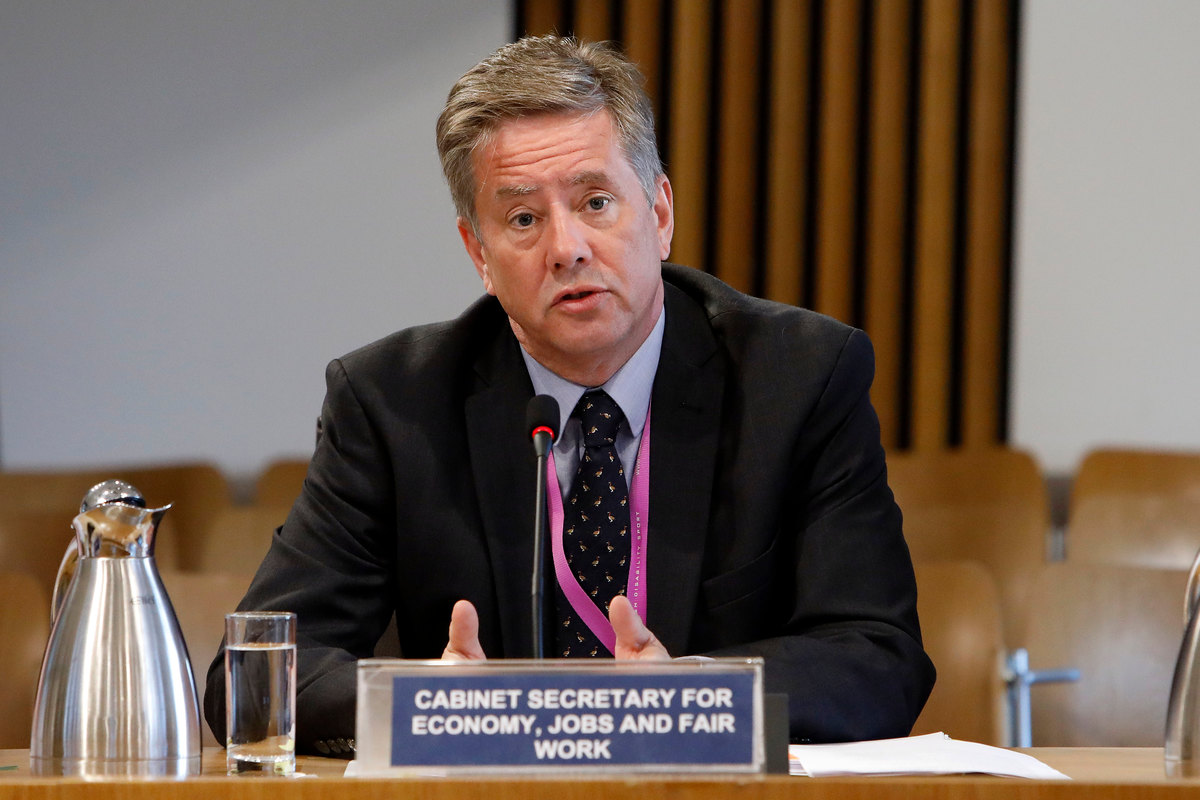
Issues explored at these sessions included:
Progress in delivery (mainly in relation to the Glasgow Deal, which was the first in Scotland to be signed);
Selection processes for projects under each deal and the transparency of processes;
The extent to which deals were likely to deliver for the whole area and whether there was early evidence of deals causing economic displacement;
Monitoring and evaluation of deals going forward;
whether deals appear to be on course to deliver growth that is inclusive, and to raise skills and employability in the workforce;
whether the Scottish and UK Government are co-operating effectively in delivering Deals, which are a joint initiative of both governments.
In relation to the final point, whilst the Committee appreciates that the Parliamentary timetable at Westminster has been busy and sometimes unpredictable during the reporting period, it was disappointing not to be able to take evidence from a Scotland Office Minister on Deals over the last year. An invitation to the UK Government remains open. On the Scottish Government side, following a Cabinet restructure, the Cabinet Secretary for Transport, Infrastructure and Connectivity Michael Matheson MSP has taken over responsibility for City Region Deals. The Committee hopes to take evidence on Deals from the Cabinet Secretary and the Secretary of State for Scotland at a meeting in the 2019-20 Parliamentary year.
Alcohol Licensing
On 23 May 2018 the Committee held a round table evidence session on Alcohol Licensing in Scotland in order to explore the ability of communities to engage with and influence alcohol licensing decisions in their areas. At the session, the Committee heard a range of views, including views on:
the role and effectiveness of local licensing forums;
how the framework for controlling over-provision of licensed premises works in practice;
tensions between the legal constraints on licensing boards and how communities interacted with them; and
the work of Licensing Standards Officers.
The Committee then held a follow up evidence session with the Minister for Community Safety at its meeting on 27 March 2019. It then agreed to write to the Minister for Community Safety, the Law Society of Scotland and Clerks of all Licensing Boards in Scotland to request further written evidence in relation to community participation in licensing decisions. The letters are available on the Committee's Alcohol Licensing page here. The Committee will consider its next steps once all responses have been received.
Budget Scrutiny
The Committee's Budget scrutiny for 2019-20 was the first year in which it took a "full-year" approach to budget scrutiny, as envisaged under the new process recommended by the Budget Process Review Group's report of June 2017. The Committee opted to focus on two issues: workforce planning, and housing adaptations, hearing from a variety of stakeholders in local government, health and social care, and housing. As in previous years, the Committee also took evidence on the overall budget for local government, hearing from the Accounts Commission and Cosla, and putting questions after the 2019-20 budget was published to the Cabinet Secretary for Finance, Economy and Fair Work and the Cabinet Secretary for Communities and Local Government. Key themes explored in these sessions included:
that there should be more data gathering to help assess the performance of new integration joint boards;
evidence of a growing gap between the budget for housing adaptations by registered social landlords and claims made on this budget;
the impact of demographic changes and ring-fencing on council budgeting and workforce planning.
A summary of all the Committee's work and the correspondence arising is available on the Committee's 2019-20 budget page here.
Derek Mackay, Cabinet Secretary for Finance, Economy and Fair Work and Aileen Campbell, Cabinet Secretary for Communities and Local Government giving evidence on the budget  The Scottish Parliament
The Scottish Parliament
The Committee has begun its budget scrutiny for 2020-21, having agreed to have an overall focus this year on the long-term financial pressures on local government in the context of increased demand on council services. So far, the Committee has held an evidence session on staff absenteeism in local authorities with Clackmannanshire Council, East Ayrshire Council, GMB Scotland, the Society of Personnel and Development Scotland and UNISON Scotland at its meeting on 20 February 2019. Following up on these sessions, the Committee called on further written evidence from Glasgow City Council, COSLA, SOLACE and the Improvement Service. All written evidence is available on the Committee's 2020-21 budget page here. The Committee also took evidence from the Accounts Commission on its report entitled Local Government in Scotland: Challenges and Performances 2019 at its meeting on 8 May 2019. The Committee's budget scrutiny will continue into the next Parliamentary year.
Building regulations and fire safety in Scotland
The Committee continues to keep a watching brief on building regulations and fire safety in Scotland, following a major inquiry it undertook in 2017-18. The inquiry, which initially focussed on control over building permissions ("verification," which the Committee recommended should stay within Councils) and home-buyers consumer rights, was widened to consider the fire safety aspect of building regulations following the tragic fire at the Grenfell Tower in London.
In relation to fire safety aspects of the inquiry, the Committee agreed to wait for the work of two review groups established by the Scottish Government in response to the tragedy to be completed, and then to take evidence from the groups' chairs. Both review groups appointed by the Ministerial Working Group reported to the Scottish Government in June 2018 - links to their reports are available here and here.
The Committee took oral evidence from the two group Chairs, from the Minister for Local Government, Housing and Planning and from the Chair of the UK Independent Review of Building Regulations and Fire Safety, at its meeting on 5 September 2018. The focus of this session was to consider lessons learned across the UK from the fire, as well as to discuss any significant areas of significant divergence between the different regulatory regimes. The Committee will continue to monitor progress in implementing the Groups' recommendations, as well as any further policy developments in response to the Grenfell tragedy, over the remainder of this Parliamentary Session.
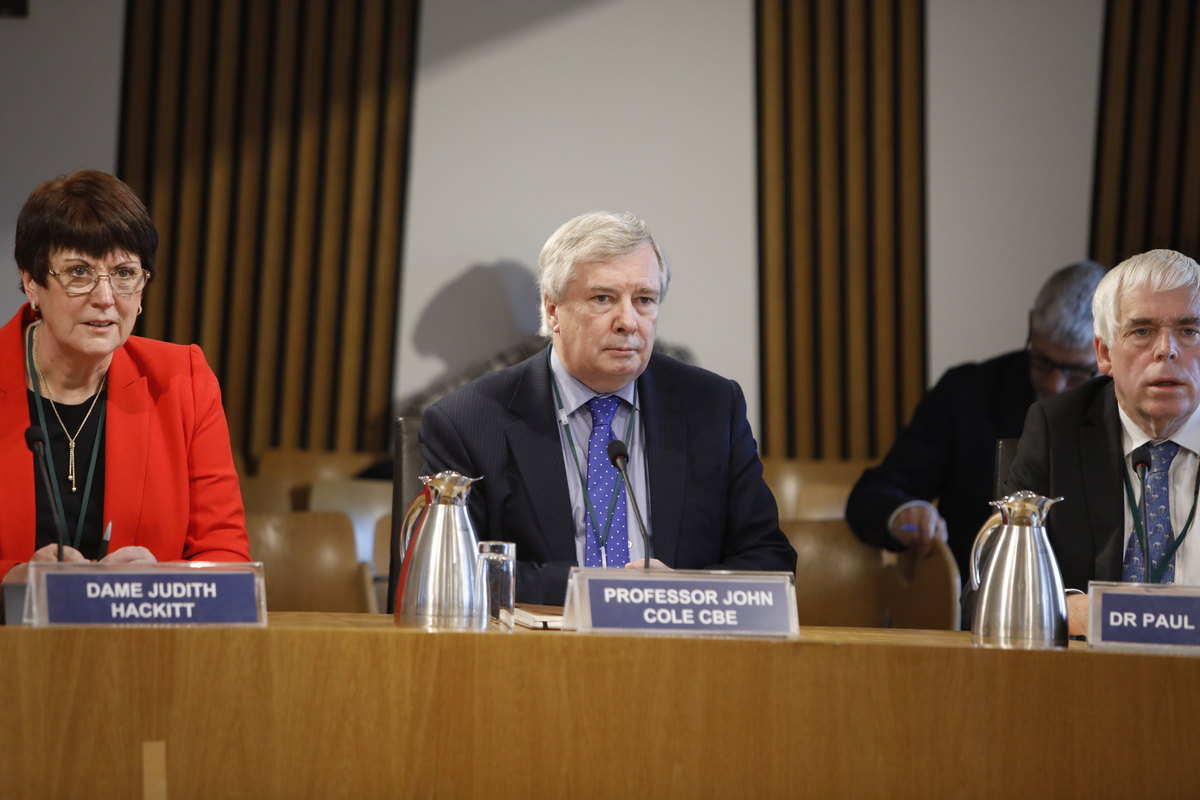
Empty Homes in Scotland
The Committee began a mini-inquiry into empty homes in Scotland, launching a call for views on Friday 5 April 2019 which will run until Friday 17 May 2019. The Committee intends to explore:
The extent of, and reasons for, empty homes in Scotland;
How effective existing legislation and policy is at addressing the problem of empty homes;
What more can be done to prevent homes remaining empty and to encourage owners to bring them back into use.
The Committee expects to complete its inquiry in the autumn, and a summary of the Committee's work on this issue will appear in next year's annual report.
One-off evidence sessions
The Committee has also held a number of one-off evidence sessions on:
The Committee undertook a one-off evidence on 1 May 2019 on new powers arising from the UK's withdrawal from the European Union, focussing on procurement and structural funds, as these are of particular importance to the local government sector. Themes from the session will help inform the Committee's response to the Finance and Constitution Committee's letter seeking views from committees on developing a more co-ordinated approach to Parliamentary scrutiny, following any post-Brexit repatriation of EU powers to the UK.
Evidence from Public Bodies
During the year the Committee took evidence from three independent public bodies whose work falls within the Committee's remit. The focus of these sessions included the office-holder's performance over the past year, whether they considered they had adequate powers to fulfil their role, and key challenges for them looking ahead:
Public Petitions
The Committee considered two petitions during this Parliamentary year. The first of these was PE1655 by Christine Metcalfe, on behalf of Avich and Kilchrenan Community Council, on Scotland's National Scenic Areas, which was referred to the Committee by the Public Petitions Committee on 26 March 2018. It called on the cottish Government to review the process for designation of National Scenic Areas (NSAs) and to consider increasing the number of NSAs in Scotland to protect the natural landscape and support the tourism sector.
The Committee considered the petition at its meeting on 16 May 2018. Given that the petition related to a planning matter, the Committee agreed to note the petition and close it, on the basis that the Committee's Stage 1 report on the Planning (Scotland) Bill had already been agreed and that any MSP could bring forward an amendment to try to meet the petition's aim at Stage 2, should they wish to do so.
The Committee also considered petition PE1686 by Sean Clerkin, on the homelessness crisis in Scotland. The petition was referred to the Committee by the Public Petitions Committee on 13 September 2018. It called on the Scottish Parliament to urge the Scottish Government to front load £40 million of £50 million from the Ending Homelessness Together Fund allocated for the core homeless over the next five years, to be used in the next year to build new homes and refurbish existing properties so that the core homeless have safe, secure, and comfortable homes in tandem with support services in an expanded housing first policy.
The Committee considered the petition at its meeting on 21 November 2018, after which it agreed to write to the Scottish Government to seek its views on the issues raised in the petition. The Government responded on 10 January 2019 and the Committee considered the response and the petition again at its meeting on 30 January 2019. At that meeting, the Committee agreed to close the petition, under Rule 15.7 of Standing Orders, on the basis that the evidence received did not support the action called for in the petition.